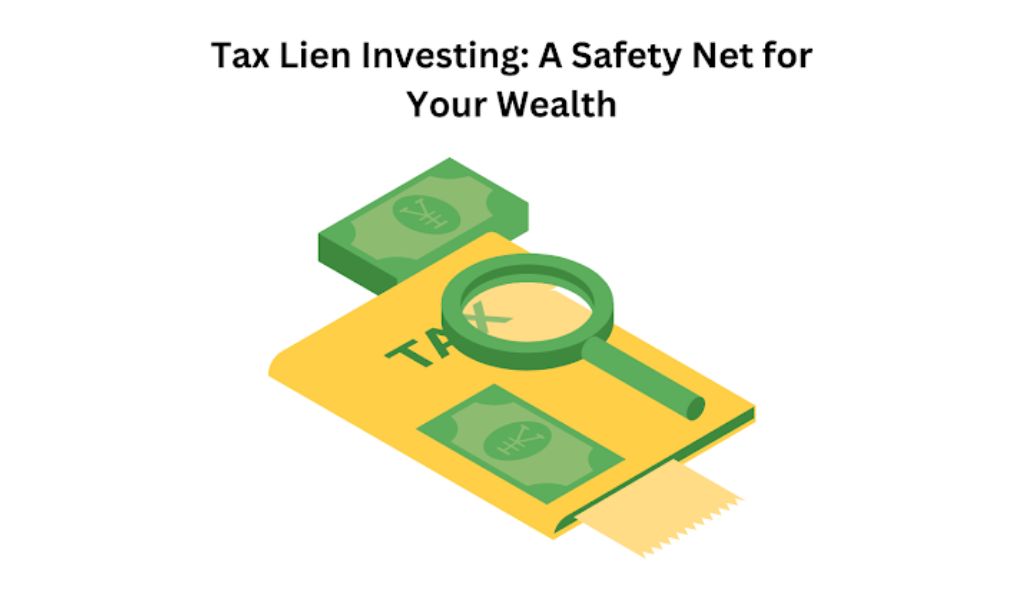Listen to the Podcast:
A tax lien is a legal claim the government makes on a property for unpaid taxes. If the taxes are not paid, the government can foreclose on the property and sell it to recoup the money owed. Tax liens are often auctioned off to investors, who buy the property for back taxes. This can be a lucrative investment, as the investor typically only has to pay a fraction of the total value of the property. However, it is essential to research before investing in tax liens, as there is always a risk that the property will be worth less than what you paid.
The Benefits of Investing in Tax Liens?
Tax sale investing is a great way to earn passive income and grow wealth. When you invest in tax liens, you lend money to the government, which they use to collect taxes from property owners. In exchange for your loan, you receive a lien on the property, which gives you the right to foreclose if the taxes are not paid. This can be a great way to earn a return on your investment, as tax liens typically offer high-interest rates. Tax liens are generally very safe investments, as the government backs them. If you are looking for a low-risk way to earn passive income, tax lien investing may be right for you.
How to Get Started with Tax Lien Investing?
Tax lien investing can be a great way to earn a return on your investment without putting up much money upfront. However, researching before starting is essential to minimize the risk of losing money. One way to learn about tax lien investing is to take a tax lien course. These courses will teach you the basics of tax lien investing, including finding and bidding on tax liens. In addition, the methods will also provide information on the risks and rewards of tax lien investing so that you can make an informed decision about whether or not it is right for you.
The Risks Associated with this Type of Investment
When investing in tax deed properties, there are several risks to be aware of. One of the most significant risks is that the property may not be worth the amount you paid. This can happen if the property has liens or encumbrances that were not disclosed at the time of sale or if the property is located in an area that is not desirable.
Another risk is that you may not be able to sell the property for a profit, either because of market conditions or the state of the property itself. Finally, there is always the possibility that the government will reclaim the property if the taxes are not paid. While there are risks associated with this type of investment, there can also be substantial rewards. For this reason, it is essential to do your homework and consult a professional before making any decisions.
Some Tips for Minimizing those Risks
Buying a house that owes back taxes can be a great way to get a deal on a property. However, there are also some risks involved. If the property is sold at a tax sale, the new owner will be responsible for paying off the back taxes. Additionally, the property may be subject to liens or other encumbrances. As a result, it’s essential to do your homework before buying a property that owes back taxes. You should research the property thoroughly and consult an experienced real estate attorney to ensure you understand all the risks involved. Taking these precautions can minimize the chances of buying a property that is a headache.
An Overview of the Different Types of Tax Liens Available for Investment
When most people think of investing in real estate, they envision flipping houses or renting apartments. However, other options exist for those looking to get involved in the real estate market. One such option is tax liens. Tax liens are claims that tax authorities place on properties to collect unpaid taxes.
There are two types of tax liens: tax deeds and tax liens. Tax deeds are issued when the property owner owes back taxes and cannot pay the debt. The tax authority then seizes the property and sells it at auction to recoup the unpaid taxes.
On the other hand, tax liens are placed on properties where the owner has already paid their back taxes but failed to pay their current taxes. If the property owner fails to pay their tax bill, the tax authority can foreclose on the property and sell it at auction. Tax liens can be an excellent investment for those looking to get involved in the real estate market because they offer a high rate of return. In addition, tax liens are relatively low risk because the government backs them.
Conclusion
Tax liens are a significant investment, but only if you understand all the risks. By following our tips for minimizing those risks and educating yourself on the tax liens available, you can feel confident investing in this unique asset class. If you have any questions about tax lien investing or more information, please do not hesitate to contact us at TAX LIEN CODE. We would be happy to help!






































